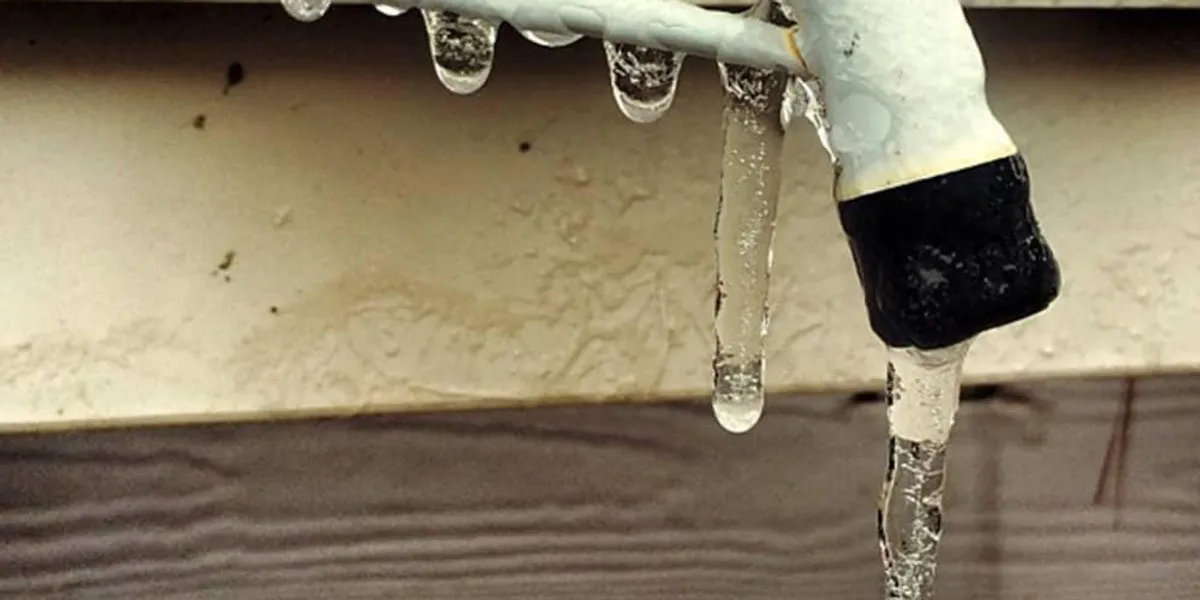Tips to Prevent Frozen Pipes in Winter: Pro Advice
Tips to Prevent Frozen Pipes in Winter: Pro Advice
Blog Article
Have you been on the lookout for facts and techniques on How To Avoid Freezing Pipes?

Cold weather can ruin your pipes, particularly by freezing pipes. Right here's just how to stop it from happening and what to do if it does.
Introduction
As temperatures drop, the risk of frozen pipelines increases, potentially bring about costly repair services and water damages. Understanding exactly how to stop icy pipes is important for home owners in cool climates.
Avoidance Tips
Shielding at risk pipelines
Wrap pipelines in insulation sleeves or make use of heat tape to safeguard them from freezing temperature levels. Focus on pipelines in unheated or outside locations of the home.
Heating techniques
Maintain indoor spaces appropriately heated, particularly locations with plumbing. Open up cupboard doors to allow cozy air to flow around pipelines under sinks.
Just how to recognize icy pipelines
Look for decreased water circulation from taps, uncommon smells or sounds from pipes, and visible frost on subjected pipes.
Long-Term Solutions
Structural adjustments
Consider rerouting pipelines far from outside walls or unheated areas. Include additional insulation to attics, basements, and crawl spaces.
Updating insulation
Purchase premium insulation for pipes, attic rooms, and wall surfaces. Proper insulation aids preserve consistent temperature levels and decreases the threat of frozen pipelines.
Securing Outdoor Plumbing
Yard hose pipes and exterior faucets
Separate and drain yard hose pipes before winter months. Install frost-proof spigots or cover outside faucets with protected caps.
Recognizing Icy Pipelines
What causes pipes to freeze?
Pipes freeze when exposed to temperatures below 32 ° F (0 ° C) for prolonged periods. As water inside the pipes freezes, it expands, putting pressure on the pipe wall surfaces and possibly creating them to burst.
Risks and damages
Icy pipelines can result in water system interruptions, residential property damages, and costly repairs. Ruptured pipelines can flood homes and create considerable structural damage.
Indicators of Frozen Pipeline
Identifying frozen pipes early can avoid them from bursting.
What to Do If Your Pipelines Freeze
Immediate actions to take
If you suspect icy pipelines, keep taps available to alleviate stress as the ice thaws. Use a hairdryer or towels taken in warm water to thaw pipelines gradually.
Conclusion
Stopping frozen pipes requires proactive procedures and quick actions. By understanding the causes, indicators, and preventive measures, home owners can protect their pipes throughout cold weather.
5 Ways to Prevent Frozen Pipes
Drain Outdoor Faucets and Disconnect Hoses
First, close the shut-off valve that controls the flow of water in the pipe to your outdoor faucet. Then, head outside to disconnect and drain your hose and open the outdoor faucet to allow the water to completely drain out of the line. Turn off the faucet when done. Finally, head back to the shut-off valve and drain the remaining water inside the pipe into a bucket or container. Additionally, if you have a home irrigation system, you should consider hiring an expert to clear the system of water each year.
Insulate Pipes
One of the best and most cost-effective methods for preventing frozen water pipes is to wrap your pipes with insulation. This is especially important for areas in your home that aren’t exposed to heat, such as an attic. We suggest using foam sleeves, which can typically be found at your local hardware store.
Keep Heat Running at 65
Your pipes are located inside your walls, and the temperature there is much colder than the rest of the house. To prevent your pipes from freezing, The Insurance Information Institute suggests that you keep your home heated to at least 65 degrees, even when traveling. You may want to invest in smart devices that can keep an eye on the temperature in your home while you’re away.
Leave Water Dripping
Moving water — even a small trickle — can prevent ice from forming inside your pipes. When freezing temps are imminent, start a drip of water from all faucets that serve exposed pipes. Leaving a few faucets running will also help relieve pressure inside the pipes and help prevent a rupture if the water inside freezes.
Open Cupboard Doors
Warm your kitchen and bathroom pipes by opening cupboards and vanities. You should also leave your interior doors ajar to help warm air circulate evenly throughout your home.

Do you really like reading up on Helpful Tips to Prevent Frozen Pipes this Winter? Place a review down the page. We would be delighted to know your thinking about this content. Hoping that you visit us again in the future. Kindly take the time to promote this page if you enjoyed reading it. I value your readership.
Further Details Report this page